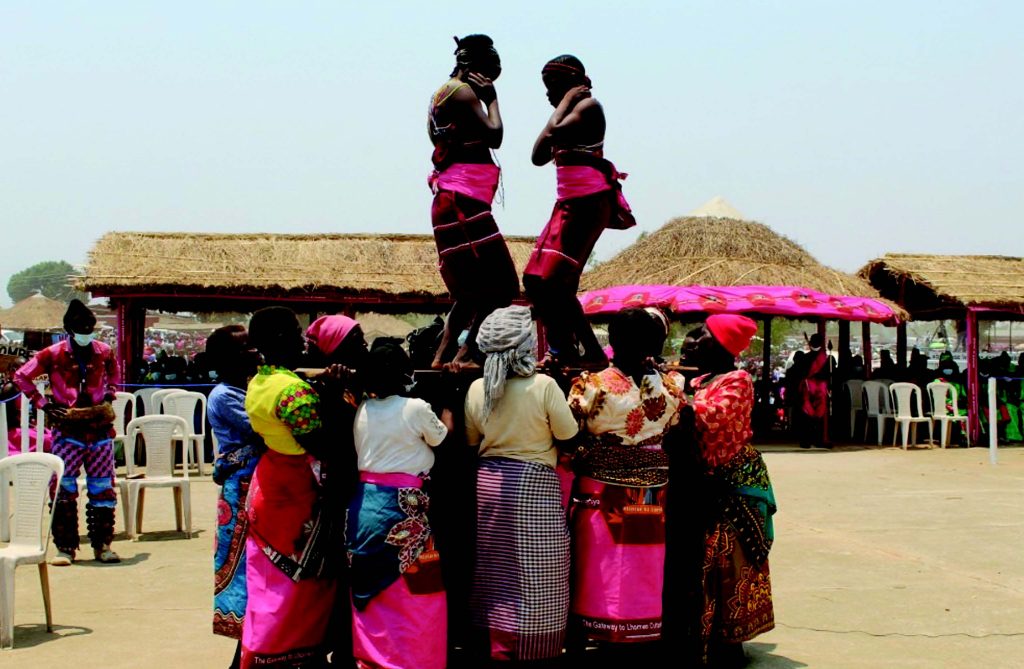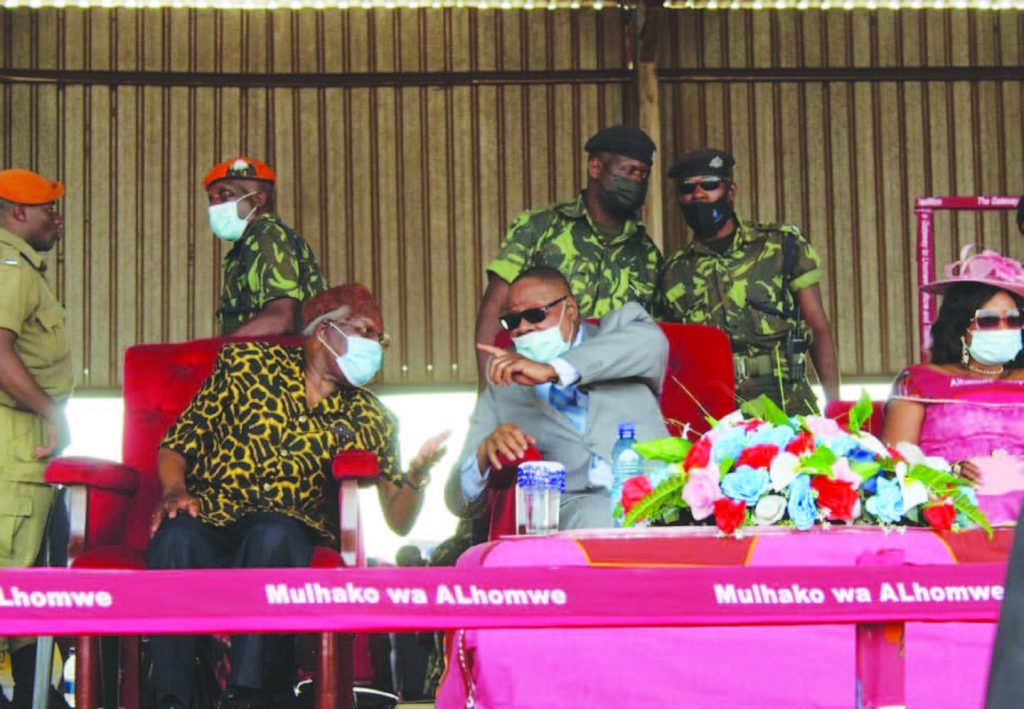Mulhako wa Alhomwe, beating Covid-19
Against the Covid-19 threat, Mulhako wa Alhomwe held their annual gathering this year at their Chonde Cultural Headquarters in Mulanje on October 10 2021.
Other known cultural groups in the country such as Umtheto, Umhlangano wa Maseko and Chiwanja cha Ayao postponed their festivals during the year for fear of spreading the coronavirus. For the same reason, the Chewas, also, did not have their Kulamba ceremony which normally takes place at Kalonga Gawa Undi’s Mkaika Headquarters in Chipata, Zambia.

But for Mulhako wa Alhomwe, everything went according to plan.
Thousands of people from all walks of life gathered at Chonde, with former president Peter Mutharika, who is the cultural group’s patron, acknowledging that this year’s gathering was the biggest since the inception of the festival in 2008.
“I have been to this function many times and this is the biggest crowd so far,” said Mutharika. This was despite uncertainty as to whether the festival would take place at all.
This year’s festival started on October 1 with, among other activities, people getting ‘body cleaning’ and sexual enhancement herbs.
The herbs stalls were a great attraction, and the stuff sold like hot cakes. And the people who were selling the herbs were real marketers who could sell a fridge to an Eskimo.

Senior Chief Kaduya, who led traditional leaders at the event to signify ownership of the cultural tradition, encouraged patrons to buy the herbs, too.
“They give the man his real position—making him strong. When women take them, they are assured of satisfaction from their husbands,” she said.
The climax of the event had to wait for the patron, who graced it accompanied by another former president—Bakili Muluzi.
Muluzi came first, but there was more pomp when Mutharika arrived.
First on the menu was a procession of chiefs, who wanted to show the crowd that Mulhako wa Alhomwe is not a politicians’ baby, but theirs.
Soon it was dancing time as the Lhomwes showcased a number of traditional dances, including their trademark soopa, chinamwali, jiri and erapala.
They were a marvel to watch as they swung their bodies—a sign that despite changing times, culture remains strong.
As a sign that the cultural grouping is not isolated, there were traditional dances from the tribes such as gulewamkulu, the symbol of pride among Chewa and ingoma from the Maseko Ngonis.
Mulhako wa Alhomwe chairperson Leston Mulli was over the moon.
“Some people have been saying we [Alhomwe] are pompous and cannot associate with other tribes. Well, they have been proved wrong because Chewas are here. So, too, are the Ngonis.
“We are a people that believe in peace, and we associate well with other tribes,” he said.
Addressing the gathering, Muluzi stressed the need for the country’s different tribes to live in harmony. He said when he fought for democracy he wanted unity and love among Malawians.
“This love should continue. We need unity in this country and this can only happen if people from different tribes live together in peace and harmony,” he said.
Mutharika also expressed happiness with continued unity among the Lhomwes. Like Muluzi, he also urged the gathering to continue living in peace with members of other tribes.
After the event, it was time for food that included dry cassava (makaka) boiled with pigeon peas (nandolo). Patrons then enjoyed networking, getting to know each other, dancing and watching the traditional dances till darkness fell on the last day of the festival, which was Sunday.





